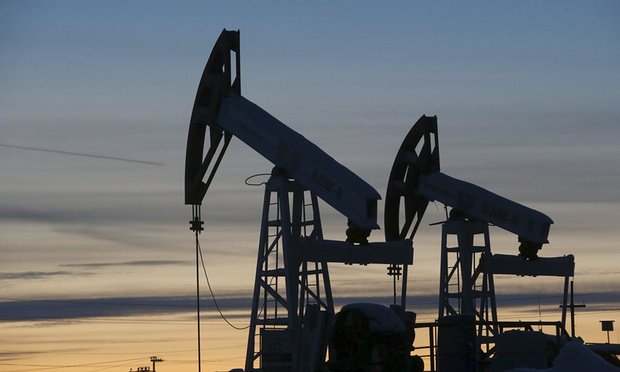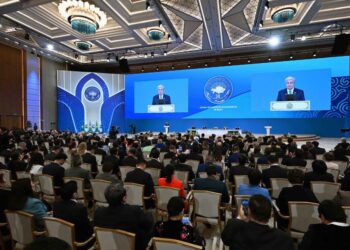Europe’s oil imports ‘dependent on unstable countries.
Europe is dependent on foreign and often geopolitically unstable regions such as Russia, Libya and Iraq for 80% of its imported oil, according to a report.
Rosneft and Lukoil are the two companies benefiting most from the EU’s current oil imports regime, supplying a third of the continent’s imported crude in 2015, according to the new study. Statoil and Saudi Aramco provided another 20%, with Chevron and Exxon accounting for 12%.
More than 40% of the oil was exported from Middle Eastern countries such as Algeria, Iraq, Libya, and Angola, former Soviet states such as Azerbaijan and Kazakhstan, and Nigeria and Angola in Africa. Russia itself was the source of 30% of Europe’s crude imports.
Just two of the top 10 oil suppliers to the EU were European – Shell and Statoil – whose combined crude market share was 12%. In total 88% of Europe’s crude was imported.
Laura Buffet, the oil officer at campaign group Transport and Environment, which commissioned the report, said: “Europe’s profligate use of oil is filling the pockets of big oil companies in unstable countries including Russia and Libya. Transport’s thirst for imported oil and diesel costs every citizen around €300 a year – money that flows out of the European economy.”
With diesel imports more than doubling between 2001 and 2014, the EU has increasingly looked to a fossil fuel-based import strategy to curb energy dependency.
But the new study by UK-based consultancy Cambridge Econometrics argues that decarbonising European transport, which makes up two-thirds of final oil demand, would be the best way forward.
“Reducing the EU’s energy dependency and decarbonising transport are two sides of the same coin,” it says. “Implementing a strong decarbonisation strategy for transport will not only permit the EU to address energy insecurity it will also being climate, environmental and economic benefits for the long-term.”
The paper recommends a new CO2 standard for cars in 2025 and including a strategy to accelerate the uptake of electric vehicles in an EU report due to be published on 20 July.
That could lead to up to 2m new jobs, a 93% reduction in greenhouse gas emissions from road transport and a 1% increase in GDP, according to previous estimates by the consultancy, which specialises in economics and data analysis.
The oil and car industries have already set their stall against such a strategy with Volkswagen, Shell and the European Automobile Manufacturers’ Association variously pitching for biofuels, or an “integrated approach” that includes “smart cities”, greener driving styles and longer lead times for targets.
Slovakia’s environment minister, Norbert Kurilla, who will preside over the release of the report later this month during his country’s EU presidency, signalled his support for this line of thought in an interview with the Guardian.
“We need eco-innovation,” Kurilla said. “In full honesty, I think we need a fully integrated approach. There is also an important dimension of emissions generated through inefficient vehicle driving.”
Europe’s carmakers say that an existing fuel economy standard of 95 grams of CO2 per km by 2021 will be gruelling, and Kurilla backed their case that addressing emissions from the existing fleet of cars should be a high priority.
“A specific target for 2025 would be good for environmental and climate impacts but I think it would be very hard for auto-manufacturers to deliver,” he said. “They need a signal for the long term and I think that 2030 would be more appropriate because then we can adjust investments and lead times for specific models, in a more efficient and addressed way.”






